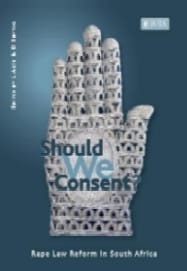Should We Consent? Rape Law Reform in South Africa
R300
This unique text charts the critical social and legal debates and jurisprudential developments that took place during the rape law reform process from a comparative and international context. It also provides important insights into the engagement of civil society with law reform and includes thoughtful and contemporary discussions on the topics. It highlights the significance of rape law reform inclusion or exclusion at various stages in the process and discusses the strategic decisions made by gender activists and the context in which these decisions were made. The book also emphasises potential implementation challenges and considers how these might be addressed in terms of law and policy.
In stock
Description
This unique text charts the critical social and legal debates and jurisprudential developments that took place during the rape law reform process from a comparative and international context. It also provides important insights into the engagement of civil society with law reform and includes thoughtful and contemporary discussions on the topics. It highlights the significance of rape law reform inclusion or exclusion at various stages in the process and discusses the strategic decisions made by gender activists and the context in which these decisions were made. The book also emphasises potential implementation challenges and considers how these might be addressed in terms of law and policy.
Key Features
- Examines the successes, challenges and defeats of rape law reform
- An important reflection on the engagement of civil society with government in precipitating and sustaining this important law reform process
- Highlights the significance of rape law reform inclusion or exclusion at various stages in the process
- Discusses the strategic decisions made by gender activists and the context in which these decisions were made
- Discussions are from a comparative and international context
- Emphasizes potential implementation challenges and considers how these might be addressed in terms of law and policy.
Additional information
| Author | |
|---|---|
| Date Published | 2008 |
| Language | English |
| Publisher |

